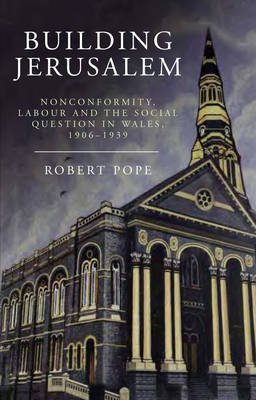Studies in Welsh History
1 total work
Much of the social and industrial history written during the last quarter of the twentieth century presented Welsh working-class culture in terms of a thirst for knowledge that was secular, economic and political. The emphasis was squarely placed on the influence of the union lodge and the workingmen's institute, and priority was given to the importance of sport and the public house in the life of the working class. Relatively little attention was given to religion and its continuing influence on industrial communities, despite the fact that the 1904 - 5 revival brought many thousands into contact with the chapel. Inspired in part by the challenge of socialist and labour agitation and in part by theological considerations, Nonconformists moved away from specifically political involvement and developed their own responses to the social questions of the day. This new edition will appeal to a fresh generation of scholars and readers interested in Wales's Nonconformist history, presenting an exploration of Welsh social thinking, politics and religion.
